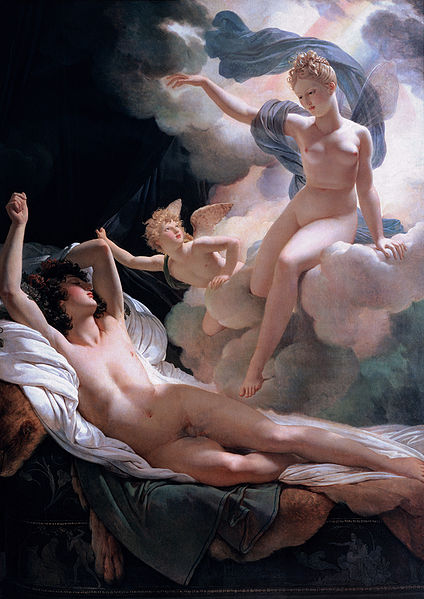THE ONEIROI IN GREEK MYTHOLOGY
The Gods of Dreams
The Oneiroi were the spirits, daimones, or gods of dreams in Greek mythology.
According to Hesiod (Theogony), the Oneiroi were the sons of Nyx (Night) alone, although later writers described these gods of dreams as the sons of Nyx and Erebus (Darkness). As sons of Nyx, the Oneiroi can thus be described as brothers to the likes of the Moirai (Fates), Hypnos (Sleep) and Thanatos (Death).
In Greek mythology it was not really expanded upon as to who or how many Oneiroi there were, although this was a theme expanded upon in later mythology.
According to Hesiod (Theogony), the Oneiroi were the sons of Nyx (Night) alone, although later writers described these gods of dreams as the sons of Nyx and Erebus (Darkness). As sons of Nyx, the Oneiroi can thus be described as brothers to the likes of the Moirai (Fates), Hypnos (Sleep) and Thanatos (Death).
In Greek mythology it was not really expanded upon as to who or how many Oneiroi there were, although this was a theme expanded upon in later mythology.
The Oneiroi in Greek Mythology
|
The Oneiroi, in Greek mythology, were though normally described as black winged daimones who resided in the dark, cavernous areas of Erebus. Many of the children of Nyx were said to reside nearby, including Hypnos, who himself had a cave there.
Each night the Oneiroi would depart from Erebus, like a flock of bats leaving their caves. As they Oneiroi departed from Erebus they would pass between one of two gates. One gate was made of horn, and the Oneiroi who passed through this gate would bring to mortals truthful, prophetic god sent dreams. The second gate was made of ivory, and the Oneiroi who passed through this gate brought only false dreams, or those dreams without meaning. The Oneiroi would prove to be useful messengers for the gods, and even Zeus took advantage of these gods of dreams to pass instructions to mortals. One Oneiroi was dispatched to Agamemnon by Zeus during the Trojan War to urge the commander of the Achaeans to send his men into war. The other famous reference to the Oneiroi in Greek mythology appears in the Odyssey where Penelope (the wife of Odysseus), talks about her dreams. |
|
More About the Gods of Dreams
|
The concept of the Oneiroi was expanded upon in later, especially Roman mythology, where writers like Ovid and Virgil, made reference to a 1000 Oneiroi, and also provided names for a handful of these gods of dreams.
In Roman mythology it was also common to name the Oneiroi not sons of Nyx, but the offspring of Hypnos and Pasithea. As such the Oneiroi were also often perceived to be attendants of Hypnos found in the god of Sleep’s cave in the Underworld. |
|
